Pokémon and the Animals in Captivity Debate
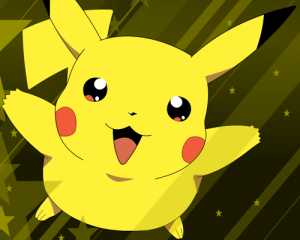 Pokémon is an anime and video-games series, created by Nintendo and Game-freak. The series focuses on creatures known as Pokémon, that coexists along with humans. Pokémon are caught, trained and used in many other ways that benefit overall society. The Pokémon universe is very similar to the real world and even features real life animals. Most people treat Pokémon with kindness and decency.
Pokémon is an anime and video-games series, created by Nintendo and Game-freak. The series focuses on creatures known as Pokémon, that coexists along with humans. Pokémon are caught, trained and used in many other ways that benefit overall society. The Pokémon universe is very similar to the real world and even features real life animals. Most people treat Pokémon with kindness and decency.
People in the Pokémon world have used Pokémon for various reasons. Most people are Pokémon trainers. Many people find reasons to exploit and abuse Pokémon mainly for profit and power. Pokémon are shown to have feelings, personalities and are capable of understanding human language. Throughout the Pokémon series various conflicts have arisen regarding the treatment of Pokémon. To this end several governing bodies have been established to protect Pokémon and punish their abusers.
Pokémon in society
The Pokémon Association is the primary governing body in the Pokémon universe. They handle the laws surrounding Pokémon. They organize the Pokémon League competitions and choose whom the gym leaders are. They establish the rules regarding the treatment of Pokémon and regulations pertaining to Pokémon competition. They are most famous for establishing the six poke-balls limit.
The society in the Pokémon universe revolves around Pokémon. Humans catch them, train them, battle with them, study them and keep them as pets. Pokémon have been known to be worshiped as Gods, used as transportation and as sources of energy. Pokémon have also been used as tools of war, firefighting and medicine. It has been suggested that Pokémon have been eaten by humans as well. This is most apparent in regards to Farfetch’d. It’s pokedex entry suggests that it, “makes for a delicious meal,”and this has lead to it’s near extinction.
Most people in the Pokémon universe are trainers. Trainers catch, train, and battle with Pokémon. Pokémon trainers must be at least ten years old in order to receive their, “Pokémon trainer’s license.” While it isn’t elaborated on in the series it has been implied that each trainer must adhere to rules in order to main that license. In episode 40 entitled, “The Battling Eevee Brothers,” Rainer tells his brother that he could “lose his trainer qualification” if he leaves his Eevee tied to a tree. This suggest that abuse of Pokémon are not tolerated and can cost a trainer.
Abuse and abandonment in the series
The Pokémon Rangers are an group that use Pokémon to protect humans, Pokémon and Nature. They only have one Pokémon, called a “partner.” Partner’s are highly trained and are with the ranger at all times. Rangers don’t send Pokémon into direct battle, instead they use them to distract enemies without attacking. Rangers look after Pokémon in various areas, and protect them from poachers.
In episode #8, The Path to the Pokémon League, we are introduced to a trainer named A.J. He trains “savage Pokémon.” A.J. uses a whip to order his Pokémon around, he yells at his Pokémon while training them. Ash interferes with A.J. as he trains them. He straps a “strength intensifier”and makes his Sandshrew dive into the pool of water. A.J. works his Pokémon hard, but they don’t feel abused. Ash even tries to get them to abandon A.J. but, they refuse. His Pokémon feel loved despite his harsh training.
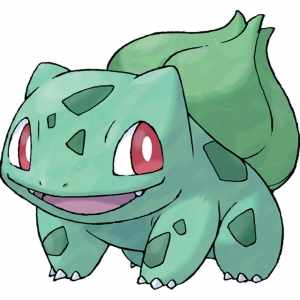
Pokémon trainers have been known to abandon their Pokémon. In episode #10, Bulbasaur and the Hidden Village, the character Melanie nurses abandoned and injured Pokémon. She set traps to guard against trainers whom may try to capture these injured Pokémon. In the following episode, Charmander – The Stray Pokémon, Ash and the others stubble upon an abandoned Charmander. This Charmander is weak due to waiting on a rock for it’s master for days. Ash over hears it’s trainer Damian. He claim’s that he left his Charmander on a rock promising to return for it and never intended to do so. They find Charmander who is in worst shape than before. They manage to save it, and later Charmander comes to Pikachu’s rescue. Charmander chooses to join Ash and reject Damian as it’s trainer.

Pokémon as tools for power and profit
There are several criminal organizations within the Pokémon universe. These “teams” as they are called vary from one another in terms of goals. Team Rocket used Pokémon for purely financial gain. They are mostly featured in the anime series. Team Aqua, Team Magma, and Team Plasma believed that they were saving the world through the power of Pokémon. Meanwhile, the leaders of Team Galactic and Team Flare aim to alter the World, through the use of legendary Pokémon. These teams are more important in he games.
Team Rocket has been the most prominent organization in the series; they were introduced in episode #2, Pokémon Emergency. They engaged in criminal behaviors from theft, selling Pokémon fossils and running casinos. Team Rocket often attempted to gain wealth through abuse of Pokémon. One instance of this abuse was cutting the tails off of Slowpoke’s and selling them at high prices. They attempted to use radio waves to gain control over Pokémon. They have consistently attempted to steal the Pokémon of trainers, and are allegedly responsible for murdering at least one Pokémon.
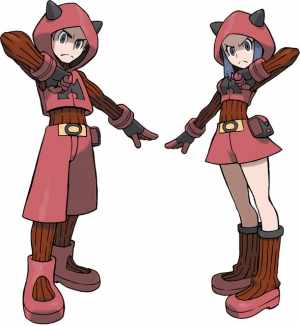
Team Aqua and Team Magma are two teams with opposing views. Team Aqua attempted to increase the surface area of the ocean in the world, with the use of Kyogre. Meanwhile, Team Magma would like to increase the land area of the world, with the power of Groudon. They engage in theft and attempt to control legendary Pokémon for their personal use, they don’t seem to have many criminal endeavors. Team Galactic’s leader, Cyrus wished to utilize the legendary Pokémon, Dialga and/or Palkia to alter the universe. They also engaged in theft to attempt to reach this goal.
However, Team Plasma had the goal of separating humans from Pokémon. They split under two different leaders, N and Ghetsis. N believed that Pokémon are friends and shouldn’t be used to battle. However, N said that “his goal is to create separate worlds for both humans and Pokémon,” and “he is willing to battle even if his Pokémon are hurt.” Ghetsis on the other hand wanted to become the “only person in Unova with Pokémon, so he could dominate the region.”
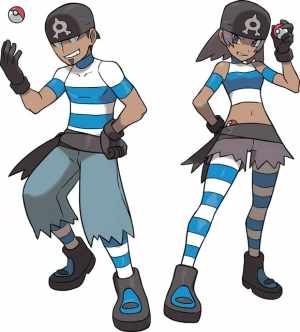
Team Flare goal was to originally create a “beautiful,” world using money and style. They attempt to generate income by stealing fossils and selling them. They engaged in stealing Pokeball’s for their Pokémon army. Their true plan is to use an ancient weapon to kill all life, save themselves. It is revealed that the large number of Pokémon, were needed to “feed” the weapon with their life energies.
Are Pokeball’s like cages?
One of the most iconic aspects of the Pokémon series is the Pokeball. The Pokeball is used to store Pokémon for carrying. Only six Pokémon may be carried by a trainer at once. The mechanics of a Pokeball is rather simple, when a Pokeball is thrown at a weakened Pokémon it opens. The Pokeball converts the Pokémon into energy and closes. Pokémon can and have escaped, however if they fail to do so they will be caught. According to Lucian, the member of the Sinnoh Elite Four, Pokeball’s are design for Pokémon comfort. This environment is designed to discourage a Pokémon from wanting to escape. Pokémon are conscious within the Pokeball’s.
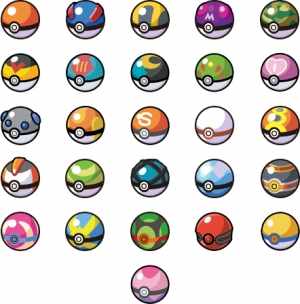
However, several Pokémon have expressed a dislike of being inside the Pokeball. In episode #1, I choose you, Pikachu refuses to get into his Pokeball. Ash implies that “Pokémon are suppose to get into Pokeball’s.” He consult’s his Pokedex, who confirms that “Pokémon usually stay in Pokeball’s during training. Pikachu taps the Pokedex, it states that “some Pokémon hate being confined.” Ash’s Pikachu is the most notable for his disdain of being held within a Pokeball. This suggests that the Pokeball can be uncomfortable. Whether a Pokémon can be forced to remain within hasn’t been discussed. Many Pokémon have been seen releasing themselves from their Pokeball’s at will. Based on this you may conclude that any Pokémon that hated being in Pokeball’s could release themselves from captivity at anytime.
Pokémon Battles
The entire series of Pokémon focus on battles primarily. It is here were Pokémon has been compared to “cock fighting,” and “dog fighting.” Pokémon battles often feature referee’s, whom determines whether a Pokémon can or cannot continue to battle. No referee is require during unofficial Pokémon battles. Pokémon trainers tend to care for their Pokémon and would naturally stop a battle before real harm is inflicted.
That said Pokémon battles can be brutal. For example in the Pokémon episode, “Electric Shock Showdown,” Ash and his friends see a badly beaten Rattata on a stretcher. Pokémon have been placed into intensive care units. While an uncommon occurrence, it is implied that Pokémon can die and have from illness, and psychical harm.
Generally, Pokémon battle till they faint of exhaustion. They are returned to their Pokeball where they will begin to heal. If you think about Pokémon attacks, they are subjected to being poisoned, burn, bitten, scratched and electrocuted. It’s clear that Pokémon are built to tolerate such conditions, otherwise they would surely die during battle. While, Pokémon have died it appears to be exceedingly rare. Pokémon appear to be resilient both physically and mentally. It is clear that for the vast majority of Pokémon are inherently driven to battle on another. Pokémon seem to get self-esteem from winning these battles.
Overall, the Pokémon appear born to battle, it’s in their nature. They have personalities, and are mostly friendly. Pokémon have been mistreated and abused by their “masters'”. They have been used to generate profits and as tools for power. There have been several institutions, rules and regulation established to punish bad behavior toward Pokémon. Pokémon are loyal to their masters. This loyalty has resulted in Pokémon being used to attack humans and tolerate abuses. They have been used to defend humans and benefit larger society as well. Generally, Pokémon behave in the manner their masters suggest, and they are noble by default.
What do you think? Leave a comment.







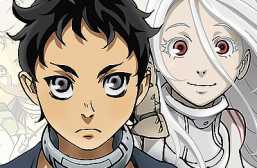


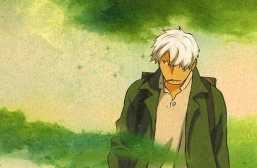
I think the problem is callously thinking of animals as mere property, rather than the more complex living things that they are.
I agree. Once you do that abuse becomes more likely.
My philosophy professor had to point out that since we base the idea of humans deserving more rights than animals on our higher intelligence, what about human beings who have the same IQ of a chimpanzee? If it’s all based on intelligence, what kind of implications does that have for rights? Mmmhmm…
I think we tend to use “intelligence”, as the criteria. However, when greater scrutiny is applied we end up looking ridiculous.
This is an interesting lens I never considered, although I spent more time watching Digimon, admittedly. Thanks for the thought-provoking article.
Your Welcome.
I recently started playing Pokémon Ruby via an emulator on my cell phone and I was thinking about this issue. I was worried about the abuse aspect, so I enjoyed reading this
Thank you.
The scary part is, in the Pokemon world the battling isn’t just a sport, its quiet literally how the government works, the champion of each region is basically the President or prime minister of that region.
i think you should have added that pokemon like to battle and do so at thier own will. if the pokemon didnt like being “slaves” to thier trainers im sure in most cases they could turn around, thunderbolt them and cruise away…
Reread the last paragraph. Thanks for the comment.
Never liked Pokèmon.
1. Too much light and flashes and stuff.
2. Animals fighting.
3. Nothing else happens, start a fight, win the fight, next fight, win next fight, and so on…
It is a repetitive series, i still love it though.
Well I mean there is plot and story, but the story bearly changes from game to game so yeah. It gets old.
Now you want me to release all my Pokemons… =(
I love Pokémon but I’m not sure about how I feel about trainers.
I like to think of the Pokémon games sort of like GTA. What you’re doing in this virtual scenario might not be in any way moral, but that doesn’t necessarily mean you playing the game means you support such ideas. Some people argue against this but just because you play something like GTA or Saint’s Row where your “protagonist” does almost nothing but shoot people, rob stores, and jack cars to get their missions complete, doesn’t mean you actually want to or wish you could do these things in real life. We play Pokémon for the satisfaction of completing a virtual collection of adorable animals that also double as badass battle drones. It doesn’t mean we’re going to turn around and do the same thing with our own pets. It just means we found a fun, fictional scenario we liked as children and still like now. As kids, most of us probably never even connected the Pokémon world to any sort of abuse or real violence. They were nifty things to collect and that’s all there was to it.
In the late 1990’s and early millennium during the peak of the Pokemon craze I was one of those children who lapped up the merchandise – particularly the trading cards. I was friends with a religious family from down the street and we would frequent the local comic book store every friday to buy a pack of cards. Even then when I was of that young age I pondered on the idea that Pokemon contained a subtle form of animal cruelty, akin to cock fighting or dog fights. I asked the father of this religious family about a similar brand of trading cards, Magic: The Gathering, and he was adamant about not letting his children buy that brand since it advocated “black magic.”
This always stuck with me. Animal cruelty seemed to be a non issue for him, an otherwise good hearted and sensible man, but then he had a peculiar stance on this notion of black magic. It was a lesson to my younger self that everyone has their own set of peculiar beliefs.
I feel so mean to Pokemon I think that Now that Im gonna catch and evolve my pokemon now and release when they are strong enough to be In the wild
in every pokemon game or the anime, the protagonist will treat his or her(games, not anime) pokemon with respect and appreciation.
I agree, everyone isn’t abusive.
Pokémon are not analogous to real world animals. They’ve been shown to have human-level intelligence (or greater) and, unlike real world animals, they actually enjoy the battle. Pokémon battles are much more closely analogous to martial arts sparring matches, something the pokémon, themselves enjoy and want to get better at. This is why they attack you, they’re trying to find a trainer who can help them become stronger, and better fighters… when the only character to be shown to actually be able to directly communicate and understand pokémon speech (N) specifically states that your pokémon don’t feel that they are abused, and actually enjoy being with you.
I seems that the relationship between Pokemon and trainers are natural.
Thanks for this. A good description of how Pokemon behave and are used. I’m only an observer of my son’s engagement with the whole thing. And, yes, as one comment above summarizes, it appears the narratives are mostly fight, next fight, next fight, next fight ad infinitum. Overall the Pokemon world seems to lack moral/ethical complexity and cohesion (i.e. it often seems like little more than putting game characters through their paces – narratively very simplistic). The one thing i appreciate about Pokemon (and digimon, yugyo, and now Yokai) is their abundant imminence in nature/the world. I do see this as an ethical and practical matter in that all these families of creatures suggests that there is basically no square inch of creation that doesn’t have life bursting out. The ubiquity of the essentially magic nature of these creatures is, in fact, communicating a rather profound ethic of immanence. And i think the fascination of many young children with these creatures is as much about their abundance as it is with the gaming aspect of putting these things into battle with each other. I would prefer if this latter reason was less important. But i value immensely the dynamics of the former.
Huh, this is really interesting. I’ve never really thought about the morality of Pokemon before. I do have to say though, while I love the games I’ve always had a preference for participating in the “extras” like the mining, bases, contest kind of things. I think it would be nice, considering that people do find the treatment of Pokemon abusive, if the devs made a game that didn’t require Pokemon battles and focused more on cohabitation or something.
Anyways excellent food for thought! Thanks so much for this
Your Welcome. I’m glad you found it interesting.
I didn’t really watch Pokemon as a kid, but Pikachu’s character has always been my favourite to watch. There are a variety of different reasons why Pokemon appealed to kids, but it was hard to understand what the message was. Watching it now, it shows exactly how the world has been structured.
I am so glad this topic was handled well. Thank you for writing it.
Your Welcome.
Any well adjusted kid is not going to take Pokemon battling as a sanction for animal cruelty and fighting. We catastrophize the effects games have on kids.
Kids aren’t as dumb or as suggestible as we think. A child who has his/her head on straight can and will form a big distinction between cutesy, pixelated animal battles and the real violence and injustice of animal abuse.
I agree. I don’t think the effect of playing Pokemon will result in children becoming animal abusers. However, within the series some Pokemon trainers have been seen abusing their Pokemon.
Pokémon is a sorta brainless kids game (that I unconditionally loved at age 12).
I’m 29 and I still love it.
Pokemon really goes to show the undeniable love that animals typically have for their owners. Though they might endure cruel punishment or neglect, they still revert back to their owners sides in the end. Charmander is abused and abandoned, yet still feels the need to satisfy his previous owner and become stronger, sandshrew and company are punished and overtrained, yet refuse to leave their owners side for it is all they have ever known and are living a relatively happy life. The creators also do well to make the connection between pokemon and the real world and educating children of proper ways to care for animals. As children, did we side with Ash or the abusers? Did we root on Team Rocket, or did we continuously pray that Ash got his pokemon back? We ultimately sided with Ash, proving to us, even at an early age, that friendship and compassion towards ones animals, or pokemon, is the true way to go. This was a very interesting concept and could stem off into so many comparisons and lessons. Thank you!
It’s an interesting idea, to think about the morality of Pokémon. I’ve always been a pretty big fan of the games, though I haven’t really kept up with the show as time has gone on. I think the fact that the show and the games really just focus on the aspect of “fainting” when they can no longer battle says a lot about the actual treatment of Pokémon. If it were a battle to the death in every case, then maybe that would be a little more concerning as far as ethics goes. But the emphasis placed on Pokémon as partners and playmates, with so many strict rules around how owning and battling Pokémon is supposed to work, makes it hard for me to think that besides the case of the criminal organizations and other rare, outlier characters in the show, that the relationship between people and Pokémon is an abusive one.
This is so compelling! I had never really considered the moral and animal rights implications of Pokemon. There is a current philosophical trend towards the consideration of nonhuman ontologies; we can also consider the treatment of virtual bodies or fictional bodies and how this may implicate or influence the treatment of tangible, physical bodies.
I think the process of catching wild pokemon is much more horrifying than the trainer battles.. You start a fight with an animal minding it’s own business in order to capture it against it’s will. If you try to capture it early on, it continues to break out of the pokeball so it clearly doesn’t want to be in there.. So what do you do? You have your other pokemon slaves beat the crap out of it until it is either too weak to move or until it passes out..and then you capture and enslave it forever..
If you put it that way it does seem horrible.
Use and abuse of animals for human pleasure creates a tough environment for parents who want to raise their kids with similar values.
As a kid, I have always perceived Pokemon to be one of the most creative and playful fictional worlds out there. But now I can understand how certain aspects do mimic animal cruelty that we can recognize in the real world. The slowpoke tail cutting for profit for instance, it’s horrible but we all know how that works because we experience a similar dynamic happening in our own world. I guess each story has to have its dark, realistic sides. Not everything is Butterfrees and rainbows. Thanks for the insightful article!
Though the abuse of animals in a vicious reality, I wonder if it is right to suggest that pokemon are noble in their own nature and are only subject to doing bad things through the will of trainers and humans. There are “dark” pokemon who do malice to humans, like Gengar or Drifloon, but not suggesting that that justifies capitalizing on pokemon. But the relationship between pokemon might and humans may be more complicated than it may have originally been intended.
The thing that trouble me is that we as a specie only value other lives that are similar to us and resemble elements of us.
Pokemon is a game marketed at young children. If taken at face value for adults, it’s not really defendable to have “friends” that you use to fight other creatures. The actual question is about how one can treat an animal, because Pokemon are the animals of that world. Is it wrong for the police to train dogs and use them to find narcotics? (Let alone breeding cows and using them for milk and meat).
That said, historically, animals have been used in war. The one difference is that, in Pokemon, the trainer never fights against creatures. Perhaps a similar game marketed at older players would have the animal and the trainer fighting together.
My 6 and 4 year old daughters love pokemon. Your article gave me lots useful info to discuss with them as I cannot watch it. It is good to know such concepts are presented. Many thanks.
Nice take on this topic. I wonder how people who aren’t trainers/battlers obtain Pokemon. Are they sold to them or what?
I really appreciated your article! I used to follow Pokémon closely but it’s been years, and I’ve been reading about it before wading back into it. This was my favorite piece on better understanding my impressions of the servant-master relationships that I’d initially presumed.
I could have maybe used an additional paragraph, between the second to last and last paragraph, drawing real-world parallels between the Pokémon who battle and similar activities of human hobbies and professions who consent and yearn for similar warfare activities, to really drive the point home.
Overall, very good 🙂
Thank you, I appreciate your comment.
If Pikachu tasted like bacon, yes I would eat it.
I found this article interesting but the only point I disagree on is the reason Pikachu doesn’t like being in the pokeball and why other Pokemon spontaneously escape. Pikachu has always struck me as a bit more of a free and adventurous spirit similar to Ash than any other pokemon. As such, it doesn’t object to the pokeball as uncomfortable or inhuman, but because Pokemon obviously don’t remain physical inside pokeballs, Pikachu seems to disdain the notion of being contained in anyway.
As for why other pokemon like wobbfafet, or the odd Pokemon in the series escape, they never seem to escape because they dislike being confined, but because they feel they have some purpose in the outside world. For wobbaffet, this is just saying its name but for other Pokemon, it is often their fighting spirit or similar motivation.
A disclaimer: I’ve only followed the anime up to the third generation; after that I’ve only seen a few episodes. Game-wise I only played up to the Diamond/Pearl era.
Your idea of Pokemon in captivity, i.e. the moral and ethical dilemmas surrounding it, was best captured when you started talking about the various uses for them by the staple “Teams.” Growing up, Team Rocket, Aqua, and Magma presented a very simple premise for me: capture Pokemon to increase a centralized power’s influence. Team Rocket under Giovanni sought to power under a single figure (hence the creation of Mewtwo) while Team Aqua and Magma, under Archie and Maxie, wanted to fulfill an ideology of “balance” (capturing Kyogre/ Groudon). What I’ve been hopefully trying to emphasize thus far is that Pokemon under these teams were necessary for the control of power.
Team Flare’s final goal, though similar to the above in that power through Pokemon involves a willing abuse of their inherent nobility, means the capture and elimination of a non-renewable resource, the Pokemon themselves. You made two statements which really echoed in my head: Pokemon as inherently loyal and noble, and as requiring governing bodies because of their nature. Team Flare’s final goal, that is the deliberate murder of Pokemon as an energy source, seem to represent the furthest spectrum of the Pokemon captivity argument. Nonetheless, it’s still a part of a larger picture which makes necessary the captivity of Pokemon for power. Whether you’re a trainer, a ranger, or one of the Team leaders, the debate for Pokemon in captivity ultimately results in the necessary domination of these creatures for their own protection (and for their owners/human partners benefit of course).
Great effort regarding the scope your research for your arguments, by the way. My only criticism is that you didn’t really give me your perspective. Of course, this is a debate but I was hoping to hear your own thoughts as well as opposed to the well-informed but nonetheless neutral middle ground this piece ends on.
Thank you, for your well thought out response. I do think that the inherent nature of Pokemon leads them to become tools for others, as well as victims of abuse. However, Pokemon need to have developed this loyalty first. If they don’t trust the trainer they have been shown to attack for their own safety.
There’s a lot more to the pokemon universe than battling. Really goes to show how much they depend on pokemon for pretty much everything. Article would be easier to follow if it was edited for grammar.
When I used to watch Pokemon (and loved all of the cute ones), I’ve always wondered what the inside of a Pokeball looked like.. if indeed it is supposed to compel a Pokemon to never leave a Pokeball, why do some Pokemon hate being confined? Maybe because like animals, some are just meant to be wild and free. Not all animals are to be domesticated, which is to probably to say the same about other Pokemon’s dislike of being inside a Pokeball. Great article to remind us that Pokemon are like animals and should be treated with great care and respect.
I’ve always wondered the same thing and I’ve seen interesting illustrations with Pokemons trying to fit themselves in the Pokeball on Pixiv. Personally I’d rather believe it has some sort of infinite space inside the Pokeball though.
I totally agree! I had never thought about Pokemon in this light, so this was eye opening. Thanks for the awesome article!
Pika~Chu!
Okay I am 23 and I am still obsessed with Pokemon. (how do you type the accent on a windows keyboard?)
“The Pokémon universe is very similar to the real world” — how? and what is “the Animals in Captivity Debate” anyway?
the Farfetch’d “pokedex entry suggests that it, “makes for a delicious meal,”and this has lead [sic] to it’s near extinction.” — how is this connected to the real world? are there people who refuse to eat pokemon in the pokemon world? are there people who don’t eat animals in the real world? are their reasons for doing so the same or different?
“It is here were [sic] Pokémon has been compared to “cock fighting,” and “dog fighting.” ” — would’ve been interested in hearing more on this.
I think the entire idea of Pokémon is very sadistic. Not to say I don’t love the series, it holds a great part of my childhood and early adulthood. A great series but much more menacing than I remember.
As a long time fan of Pokémon, I’ve had many an conversations about most everything they present to us; in the manga, anime, video games, and card games most notably. First of all, Pokémon is based off the idea of bug catching, and then twisted with fantasy elements. The original idea of the games, and even the anime, was more focused on collecting more than it was on training. Since the game has “evolved,” there have been features added in to focus more on the training aspect, especially for the competitive players of the series. I play more as a collector than a trainer, to be able to see and study the Pokémon so I know more about them.
The idea of Pokémon in captivity was brought up in Generation 5, from the games Black and White. With the organization Team Plasma bringing it up in the game, the conversation started among real fans of the series too, sparking the debate to go further than it has in the past. In the anime, there are Pokémon such as Pikachu who do not wish to stay inside their Pokeballs. Some feel it to be a form of captivity, but other Pokémon view it as a better resting station before they can reach a Poke Center.
Having them battle is shown in the series and in the games. While most people view this as a form of “cock fighting,” that’s not exactly how it works. Yes, there are some trainers who capture and abuse the Pokémon in their care. Several of the Pokémon Ash Ketchum has were treated like such in their past. But Pokémon do willingly join trainers to follow them on their cause. Many of Ash’s Pokémon stay because they know he’s a trainer and they want to get stronger with him, finding his style a better fit for them. Other trainers’ Pokémon do the same with them, and I assume the evil organizations have some of their Pokémon because they agree and support what they’re doing. It would be nicer to assume all Pokémon are good hearted, but they do follow their hearts the same way people do.
Not all Pokémon are in captivity. Some are treated that way, yes, but the Pokémon that live with most trainers do so willingly. Many Pokémon willing allow trainers to capture them if they can prove to be a worthy enough trainer. They’re not all fighting without free will
I have been a fan of the Pokémon franchise for a long time. I currently have the new game Pokémon Sun (awesome game, by the way). This game has an added feature in which the trainer can care for their Pokémon, such as feeding them, petting them, and brushing them, making the bondage between them stronger.
The way I see it, Pokémon always focuses on the themes of connection and bonds between humanity and Pokémon, something that the people should consider. There are those who see their pets more than just pets and there are those who see animals as a way of profit.
I think Pokémon explains how important bonds are to every living thing on the planet.
I enjoyed reading this article, but I also thought there could be more discussion about newer features in the games focusing on building up “friendship” with one’s Pokémon. Sagemaster1, you mention bonding features in Pokémon Sun, but such features began notably back in Generation 2 (Gold, Silver and Crystal), mainly the ability to give a Pokémon a haircut (which, for whatever reason, they really seem to get a kick out of). Additionally, there is also the existence of certain Pokémon who require a certain amount of “friendship” towards their trainer to even evolve. This article was fantastic–just thought based on the overall topic that this could have been mentioned a bit more.
I think of the Pokemon/human relationship as symbiotic. They seem to need each other, and at least in the modern Pokemon world, avoid war through cathartic sport and prevent natural disaster by working together.
I think something important to note is that aside from actual physical cages, there really isn’t much stopping a Pokemon from escaping an unwanted situation. For example, Pikachu makes the conscious decision to not stay in his Pokeball despite Ash’s efforts. Then, in a later episode, Ash can see that Pikachu is enjoying spending time with a huge group of other Pikachu, so he tells Pikachu to stay with them, where he belongs. This opens an opportunity for Pikachu to decide if he would rather stay with Ash or his own kind and he chooses Ash. There is a world of choices for Pokemon. To stay in the cage, to not stay in the cage. To run away from the trainer, to not run away. If a trainer even attempted to stop the Pokemon, what could they really do?
Team Rocket steals Pikachu, pikachu electrocutes them and runs away. Steal a butterfree? Enjoy the sleeping powder. Bulbasaur? Here comes razor leaf. Though, I have to wonder. In some cases it might be loyalty, in others it may simply be brainwashing. Whatever the case, a great majority of the time, if a Pokemon is unhappy, the show shows that they know how to leave.
I always felt bad for making them compete in random fights for fun. It’s not right. It’s like owning a slave and then getting your slave to fight another person’s slave just for fun to see who’s slave is stronger. Bad analogy, I know. But when you cut it down to the basic facts, they match. I still love the series and will continue playing the games, but that’s always been a thought of mine.
This one relies a lot on Thermian arguments that is, in universe justifications for comments made outside of the fiction. While it can definitely be posited that pokemon can liberate themselves at any time the universe necessitates that they don’t so in turn they don’t that leaves us at a moot point.